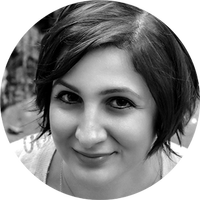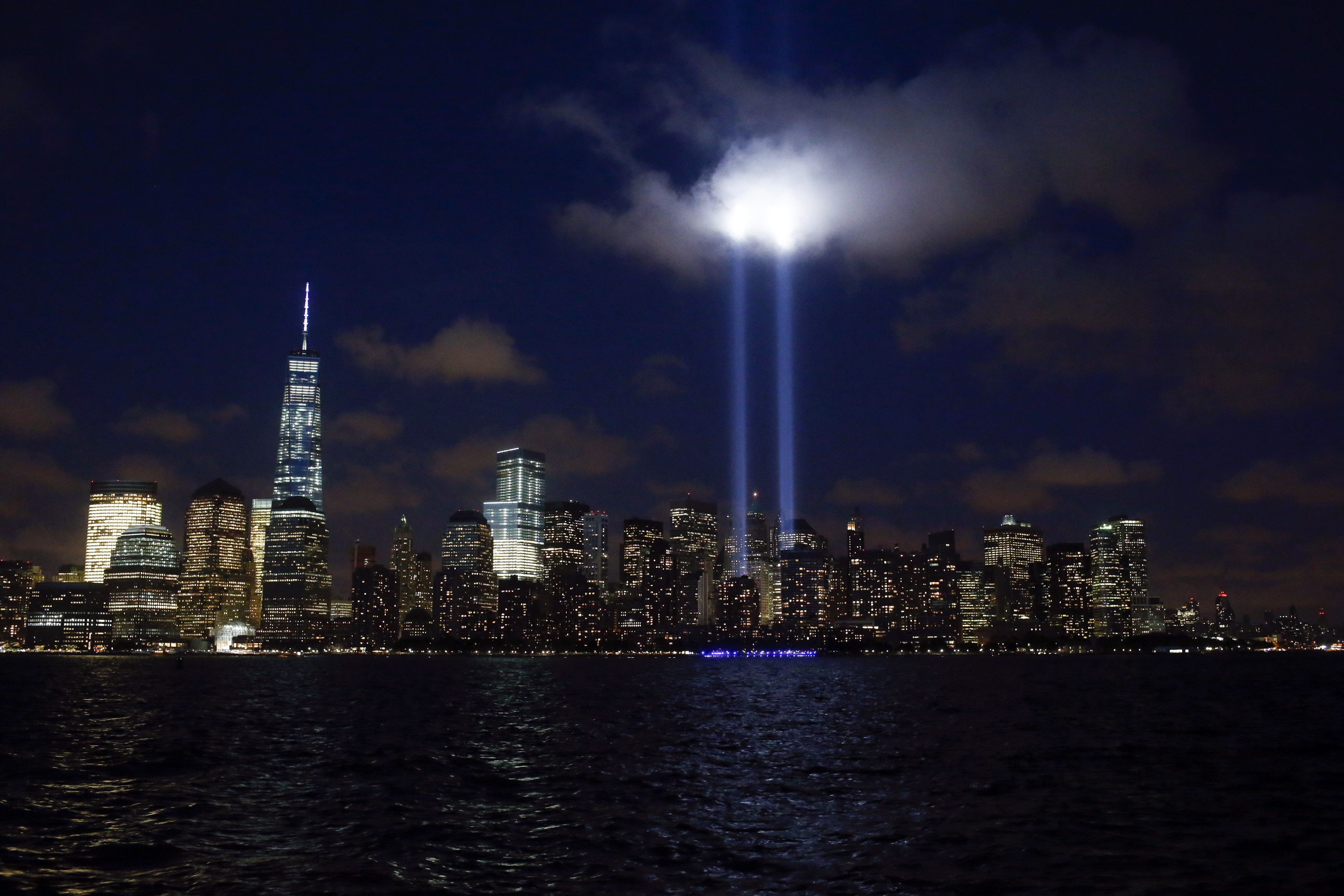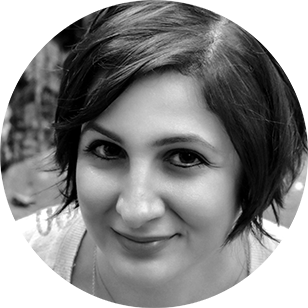I was 12 when I survived 9/11. Here's how I finally recovered.
I spent my teenage years traumatized, misdiagnosed, and plagued by residual fear


On September 11, 2001, I was in school in downtown Manhattan. It was my second day of seventh grade. My classroom was just three blocks away from the World Trade Center, separated from those iconic buildings only by a highway and a few sidewalks. Sometime that morning, we students were ushered down to the cafeteria and told not to stop at our lockers. We were all speculating about what was going on, but at that point, I remember: I wasn't afraid. Not yet. Then some kids who had working radios on their portable CD players relayed the news: Two planes had hit the towers.
When the bomb squad burst through the doors, along with droves of hysterical parents crying and screaming, I knew my parents wouldn't be among them — they were still at their far-away jobs. I spotted Ann and her son Charles, who I walked to school with every day, and I instinctively hustled over to them, knowing they could get me home so I wouldn't have to evacuate to wherever the other kids were going.
Outside the school building, the burning smell instantly stung our nostrils. Our eyes burned. The buildings vomited paper and people. The crowds were crushing, and it was almost impossible to move, but we had one objective: Get home to the east side of lower Manhattan, to our neighborhood, which was also just three blocks away from the World Trade Center. But police on the west side kept refusing to let us through, directing us uptown only.
The Week
Escape your echo chamber. Get the facts behind the news, plus analysis from multiple perspectives.

Sign up for The Week's Free Newsletters
From our morning news briefing to a weekly Good News Newsletter, get the best of The Week delivered directly to your inbox.
From our morning news briefing to a weekly Good News Newsletter, get the best of The Week delivered directly to your inbox.
Soon, we were running from a giant cloud of smoke and debris. Ann told us not to look. "Just cover your faces, don't look back, and run!" The scene for the next hour, as we tried every possible route into our own neighborhood, was the stuff of nightmares: bleeding bodies, piercing screams, blood-curdling cries. I was covered in debris and kept forgetting to pull my shirt over my face for protection. We spent an hour navigating the horror, trying to get home. Once we finally made it back to our apartment, we realized our neighborhood had become a war zone.
The lobby of our building was dark. People hid inside, covered in ash.
When I pushed open the staircase door, I saw my Grandma at the end of the hall, standing in the doorway of her apartment, holding the phone to her ear.
"She's here, Paul!" Grandma cried into the phone. "She's here! Oh my God!"
A free daily email with the biggest news stories of the day – and the best features from TheWeek.com
My grandmother gently thrust the phone to my ear, smoothing my hair and kissing my head as I assured my dad that I was okay, although we all felt a frantic, panicked sense that time was limited. We quickly called my mother next. She was still at work. Out the window, I could see nothing but black. On the TV, which was still working for the time being, I saw what we had been running from — the collapses — and saw the Pentagon had also been hit, and yet another plane had been hijacked. I thought planes and bombs were destroying the entire country.
Soon the power would go out, and the water with it. We wrapped towels around our heads to use the payphone across the street, venturing alone into that dust storm that came from the still-burning towers. The payphone worked long enough for my dad to tell me that the police told him everyone had been evacuated.
But we hadn't been. We remained in our home, huddled in darkness, as mayhem swirled in the streets outside.
As days turned into weeks, we only had the food and medication my father helped coordinate from New York Downtown Hospital across the street. We also had more threats of collapsing buildings and bomb scares on nearby landmarks. We were told to pack an emergency bag and have the whole family ready to leave on a split-second's notice — without having any idea where we would go.
When the National Guard showed up, the sound of a plane sent me into a hysterical panic. I was paranoid, waiting for the next attack. My sleep was interrupted by nightmares and flashbacks. While New York City above Canal Street and the rest of the world resumed "life as normal," I felt like a sitting duck waiting to die.
It became very clear to me that nothing would ever be normal again.
As time passed, I tried to pick up where I left off. I read teen magazines, worked as a camp counselor over the summer, developed crushes on boys, and went to the movies with my friends on weekends. But despite my best efforts to be a normal teenager, darkness, depression, and extreme emotional sensitivity followed me to one high school, then another, and another. Nothing felt safe. My brain interpreted the sound of a moving desk from the floor above as the sound of a bomb detonating. I thought the girls snickering at me as I bolted from the cafeteria to hide either in the library or the guidance counselor's office during lunch would definitely find a way to physically hurt me. If I pulled myself out of bed for school, I worried I wouldn't make it home alive. When my boyfriend broke up with me, I became so distraught and consumed with grief that I didn't want to live. And unlike some teens who might have a similar passing feeling after heartbreak, the truly dangerous part was that coupled with the chaotic inner mess that my daily existence was, I really did seriously consider suicide.
My parents and I had a feeling this wasn't just teen angst, and I was determined not to live the rest of my life like this. I needed help.
We began seeking the help of numerous therapists and psychiatrists. The diagnoses rolled in. First, I was diagnosed with depression because of my constant sadness, my inability to find joy in anything, my inability to get out of bed in the mornings to face the school day. They gave me medication. Then I was diagnosed with ADHD, because of my inability to concentrate in class, the anxiety and the sleeplessness, the rapid and unstoppable flood of negative thoughts. They gave me medication for that, too. I was diagnosed as bipolar, because of my episodes of extreme reactivity and volatility coupled with my ability to also feel extreme happiness. Another medication. All of those pills either made me sick, or had no impact at all.
For six years, numerous medical professionals tried to "fix me" and kept failing, traumatizing me all over again.
As I entered my late teens, my triggers changed. They were no longer limited to the sounds of sirens, the smell of burning, or the footage of the towers collapsing that still, years later, played on the news. Now, if my boyfriend ignored texts or walked away from me on the street — those same downtown streets I ran through on that Tuesday morning — I'd do anything I physically could to stop him. If you leave me here, I'll die, I thought.
Sometimes, I didn't need to be triggered at all — I just existed in a state of irritability, arousal, and stress. My mind tortured me relentlessly, forcing me to reach for anything outside of myself to feel better, even just for a moment. I felt like the shadow of a person. After so many failed attempts at therapy, I gave up on it, and my world became even darker.
When it came time to choose a college, I stayed in the city because it was just too scary to consider going anywhere else. I worked hard in school and did well, but I was still wiping my eyes with scratchy brown paper towels before class and popping Klonopin to ease my panic attacks. I was dating a guy who was emotionally and physically abusive, which I knew was wrong, but he was my only link to some sort of human connection, companionship, the lifeline that pulled me out of having to sit in my room alone, ruminating in my dark thoughts.
My life may not have looked bad on paper, but I was too saturated in what was wrong to see what was going "right." At parties, in class, at my after-school job, commuting on the subway, going on vacation with my parents, my mind fabricated life-altering crises. I was like a veteran always doing threat assessments everywhere I went, sending everything through this murky, filthy filter. At one point, I found myself on my neighbor's roof, thinking about how I could never stand to live the rest of my life this way.
Finally, during my second semester of my freshman year of college, I decided to reach out for help one last time. I decided to try something called cognitive behavioral therapy.
My therapist (who I'll call Dr. A), seemed to be able to connect the dots from my past to my present in a way nobody else had. She didn't specifically mention PTSD or 9/11, but she knew right away, and started to work with me on skills to repair my brain's faulty wiring. The therapy began to help, but when Dr. A left after a year to go on maternity leave, I was referred to a dialectical behavioral therapist, Dr. J, who focused on mindfulness and emotional regulation. She was the one who finally told me, during our first session, "I know where this started," and made the diagnosis of PTSD.
This made some sense at first, and as I started to research what happens when trauma goes untreated, especially in young people, it really crystallized for me.
Dr. J explained that age 12 is a crucial time for healthy detachment from parents, and because I experienced so much trauma then, it severely affected my ability to feel secure and safe. She explained that, ironically, I pushed people away for fear of being hurt or abandoned. She explained why moments of stress sent me spiraling into hysteria, and why it was so hard to think rationally and calm down, why my behavior was difficult for boyfriends to manage, why I kept traumatizing myself again and again by getting drunk and acting out or putting myself in dangerous situations.
Because I had been through what presented itself as the end of the world, that's how I had been living ever since. For me, this large-scale, global trauma did not have a definitive ending. It was all over the news, all the time. It changed the entire world, and for years, Ground Zero was just blocks away — there was no escaping it. So, as I grew up and the stressors became different, so did the triggers, and so did the symptoms. A pervasive feeling of impending doom led my nervous system to respond to everyday moments like I was running for my life again, keeping me permanently wound up, exhausted, or depressed.
One day, about seven years ago, Dr. J said to me, "You're making a ton of progress that you should be proud of, but when you do have these major panic episodes, you're not sober."
It took me two more years to come to terms with the fact that, even though I only drank socially, I couldn't stop when I started. I was an alcoholic; and once I got sober, the final piece of the puzzle clicked into place.
Years later, after I'd finally had the proper treatment for my PTSD, persistent questions linger: How did they miss it for so long? How could it not have been obvious that the diagnosis was post-traumatic stress disorder?
One out of every two children in this country will live through a trauma, whether it's an unstable or abusive home or an "unsafe" neighborhood, an accident, a natural disaster, sexual assault, a shooting, or terrorism. Kids don't really have the words to describe what's happening to them, or what their symptoms are, or trace them back to where it began. They don't "connect" the dots that far back, and frankly, adults typically don't either. But it's not the patient's job to connect the dots, or the parents', or the teacher's: it's the doctor's. In my case, I was misdiagnosed over and over.
In addition to bipolar and ADHD, other misdiagnoses that continue to flood the medical records of young people everywhere include acute stress disorder, adjustment disorder, obsessive compulsive disorder, and panic disorder, to name a few. Some people will give up, not wanting to start from the beginning again with this doctor and that one, feeling hopeless. So, aside from raising awareness about PTSD and trauma in young people, we must teach our children resilience, so the invisible scars of trauma don't lead to worse damage.
There was no magic pill that was going to help me get well. It took years of work, but with help, I was able to put myself back together again and start over. Others can, too.
Helaina Hovitz is an editor, writer, and author of the memoir After 9/11. She has written for The New York Times, Salon, Newsweek, Glamour, Forbes, Women's Health, VICE, and many others. She is currently the editor of branded content at Upworthy/GOOD.
-
 Claude Code: the viral AI coding app making a splash in tech
Claude Code: the viral AI coding app making a splash in techThe Explainer Engineers and non-coders alike are helping the app go viral
-
 ‘Human trafficking isn’t something that happens “somewhere else”’
‘Human trafficking isn’t something that happens “somewhere else”’Instant Opinion Opinion, comment and editorials of the day
-
 What would a credit card rate cap mean for you?
What would a credit card rate cap mean for you?the explainer President Donald Trump has floated the possibility of a one-year rate cap
